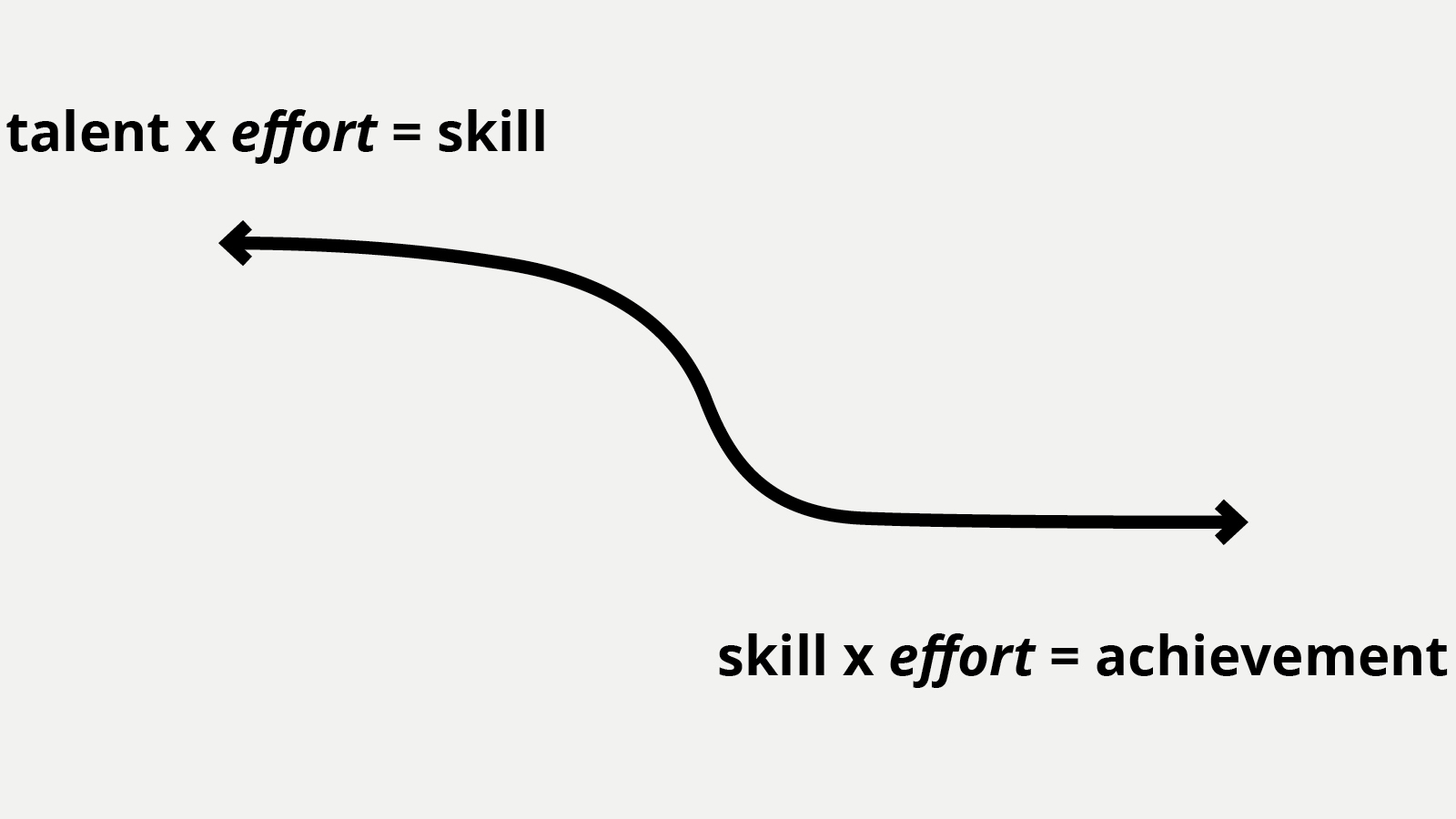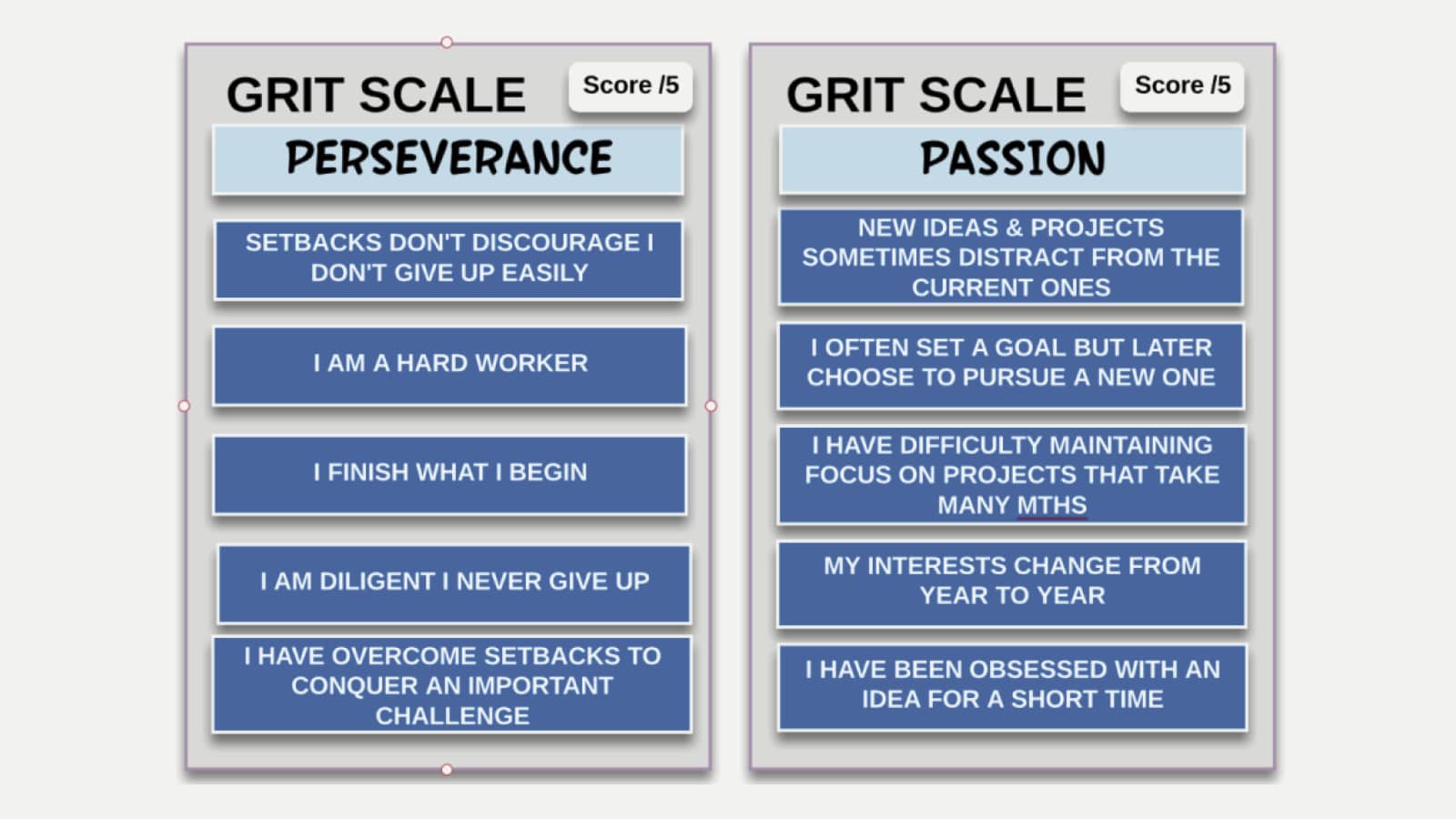“Improvise, adapt, overcome.” —A slogan of The Marine Corps.
If you love what you do, then you’re helping others through your profession in the kitchen and bath industry. That’s because the quality of service and the work that you do for the people who hire your firm is impactful. Their positive experience stays with them for as long as your kitchen is in their home.
Angela Duckworth has helped millions of people see how gritty people achieve more than others. If you aren’t sure what it means to be gritty or think you could stand to improve your own grit, take a look at how gritty people get what they want.
What is grit?
Have you ever pushed yourself to achieve a long-term goal?
That’s grit. It’s derived from one of the five major traits that psychologists use to measure personality. Openness, Conscientiousness, Extroversion, Agreeableness, and Neuroticism, otherwise known as OCEAN.
Angela Duckworth, author of the New York Times bestselling book GRIT: The Power of Passion and Perseverance, defines grit as “perseverance and passion for long-term goals.”
“Grit,” she states, “enables an individual to persevere in accomplishing a goal despite obstacles over an extended period.”
If you’re thinking far into the future for your firm, then it’s possible you’ve adopted a stretch goal to inspire growth and development for you and your team. Stretch goals differ from SMART goals in that they do not measure success solely from achieving them but by the difference they make in the people who strive to achieve them.
Who’s successful and why?
We naturally correlate a relationship between talent and IQ, but Duckworth says practicing, which leads to acquiring a skill that leads to achievement, raises our IQ!
On top of lots and lots of practice to achieve your goal, the effort put forward counts twice as much as talent.
Talent · Effort = Skill & Skill · Effort = Achievement
 Those who are passionate about achieving their goals know that effort leads to greatness, and they stick with it because it works.
Those who are passionate about achieving their goals know that effort leads to greatness, and they stick with it because it works.
You can grow your grit in four steps:
- Develop a fascination—The more you are interested in what you are trying to achieve, the more likely you are to meet your goal. Gritty people are passionate and revel in the notion: “I love what I do!”
- Focus on improvement—Practice – a lot – for the benefit of what you are trying to achieve. Focus on excellence, not perfection. In every area of grit, there is the conviction: “Whatever it takes I want to improve.”
- Develop a purpose—People want their work to mean something. Finding purpose in our work strengthens interests and kindles passion. By determining how your work benefits other people, we can sustain our own happiness.
- Grow your mindset—Long-term success is dependent on core beliefs.
Overall, those who view their work as a calling, rather than a job or career, hold a greater sense of purpose for what they do.
Former CEO of Vanguard, Bill McNabb, tracked the firm’s senior leaders to find out why some excelled compared to others. He found that the ones who did not excel had preconceived notions about themselves. Their mentality was “this is who I am, this is how I do things.” Those who excelled in their positions were on a “growth trajectory.” They are the people who keep learning and growing, those who cultivate all sorts of talents and achievements in an effort to satisfy their drive.
If you ever doubt your ability to perform, Duckworth suggests recalling a time you encountered a challenge that you thought you would not be able to complete – but with determination and hard work – you did complete. Remember how you achieved your goal, and how you felt when you were done. Then channel that needed energy toward your current challenge.
What does it mean to be gritty?
Gritty people:
- Are fixed on high-level pursuits but flexible enough to handle low-level group goals, such as the daily “to do” list
- Know the “why?” behind everything they do
- Are focused on the end goal like an Olympic hopeful
- Are tenacious
- Seek feedback for improving themselves
- Fail, and begin again, because they know that failure is part of the road to success
- Don’t waste time being ashamed or feeling anxious, because they are too busy seeking feedback and improving
- When a gritty person gets a rejection slip, encounters a setback, or reaches a dead end, they are disappointed, even heartbroken. But not for long
- Not only put in more hours than the next person, but they also fill their hours with intense, undistracted focus
- Embrace boredom and avoid environments of distraction
Determining grittiness — how gritty are you?
Grit has two components: passion and perseverance.

You can learn your level of grittiness by answering the ten items of Duckworth’s grit scale. There are two areas to rank: one is for perseverance and the other is for passion. To calculate your grit score for perseverance, add up the even-numbered items and divide by five. To calculate passion, add up the points on the odd-numbered items and divide by five.
If you didn’t score as high as you would like, you can improve your grittiness. Adapt the mindset to be willing to sacrifice low-level goals in order to achieve high-level ones, and move in the same direction every day toward the same goal.
As long as you are passionate about achieving your goal, you’re well on your way to getting there.
Practice is the path to excellence
Deliberate practice is a system of preparation that helps people develop expertise. It’s used by world-class athletes, dancers, musicians, artists, business persons – anyone who wants to be the best at what they do.
Break deliberate practice down task by task to optimize the results:
- Define what you need to do to master a skill. Make a list of everything you need to do in order to become successful at the thing you want to master.
- Drill down on each of the steps one at a time over and over again.
- Rest, plan, reflect and take notes. It’s important that you make a record of your progress.
- Go slow. Give yourself time to learn the right way to do the task you’re practicing.
- Limit your sessions. It’s hard, grueling work! Start with 15 minutes and work your way up to 60 minutes as your focus and skill improve.
- Maximize practice time. Make the most out of your practice by earnestly engaging for the longest period of time that you set aside to do it.
- Track your improvement. You improve little by little as you go. Keep a record of this in your notes.
- Emulate practice, not performance. You’re not trying to impress anyone, you’re doing this to learn. Practice makes perfect. Keep up the practice in order to ultimately perform brilliantly.
- Strive for excellence with repetition. It takes years and millions of reps in order to approach mastery of something.
- Routine is everything. Once you create the schedule of your routine, keep it. By following a strict disciplined routine, you will develop a sense of purpose for what you are trying to do.
- Get a coach. The best students have teachers.
Expecting more from yourself is the first step to becoming gritty. By adopting a routine to exercise the activity you want to learn, that activity can become a genuine talent. It may take years to master but you can become proficient in months.
Taking grittiness to the bank
Visualize your sales designers earning retainers during their very first showroom meetings with prospects, all following the same selling system! Imagine replicating that successful sales process with a string of satellite showrooms by leveraging DesignAlign technology.
When you invest in yourself, you’re investing in the life and future of your business. When you invest in your business to streamline its sales process with a Good-Better-Best selling system, you’ll double your sales in half the time and charge up to 40% more for your projects!
Discover the proven strategies to enhance the customer showroom experience that underpin phenomenally successful businesses. It’s well worth your time to invest just two days in learning how to generate more revenue – in half the time – for your business.
For less than $300, you or one of your sales designers can attend the SEN Good-Better-Best Sales School in Chicago on September 8 & 9th. The regular tuition fee is $1,695 so this opportunity is an exceptional value. Contact Shannon Blair for more information or to sign up!
—SEN Design Group



